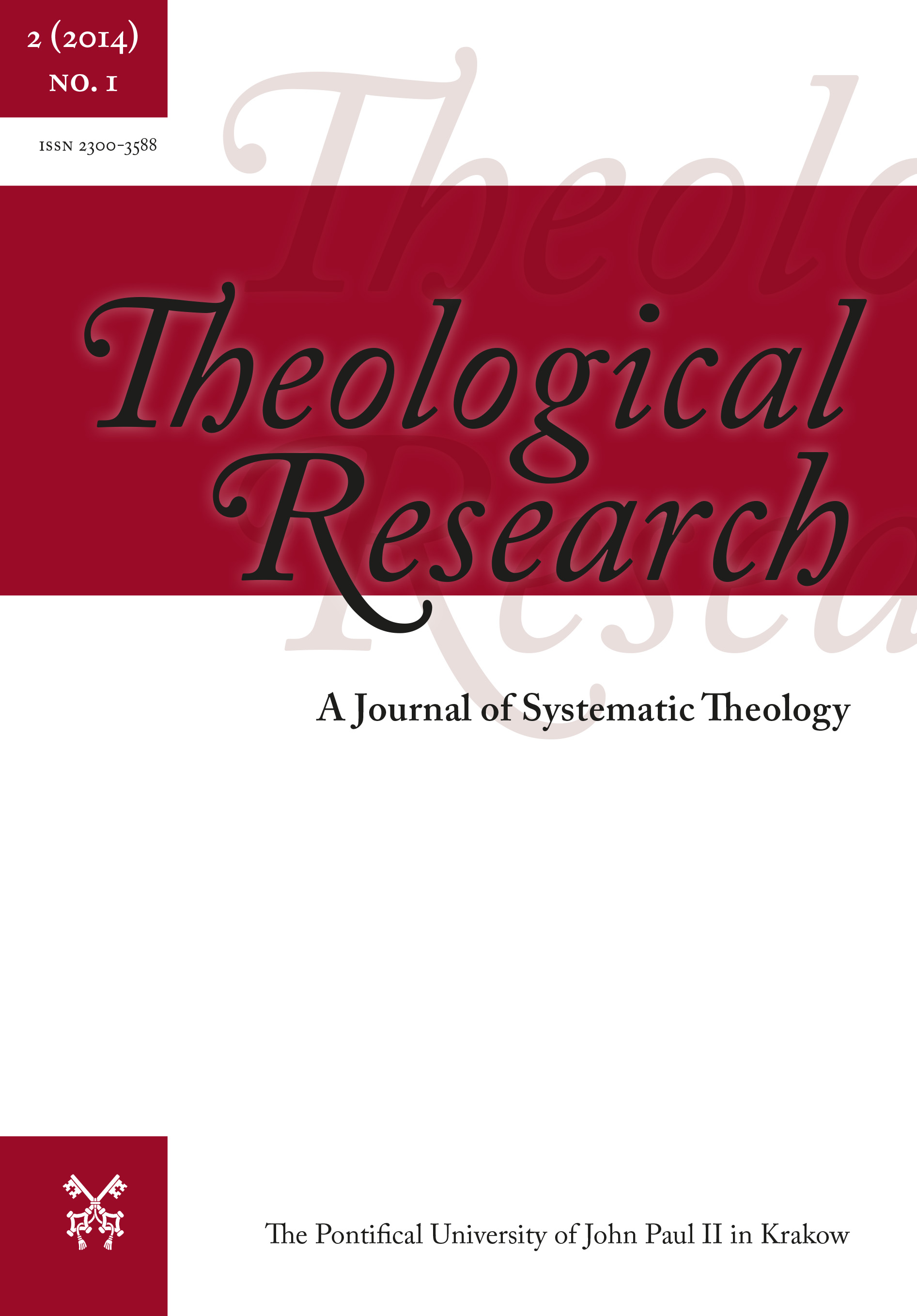Life as Relatio: Classical Metaphysics and Trinitarian Ontology
Life as Relatio: Classical Metaphysics and Trinitarian Ontology
Author(s): Giulio MasperoSubject(s): Christian Theology and Religion, Systematic Theology, Pastoral Theology
Published by: Wydawnictwo Naukowe Uniwersytetu Papieskiego Jana Pawła II w Krakowie
Keywords: Gregory of Nyssa; Augustine; Thomas Aquinas; metaphysics and trinitarian theology
Summary/Abstract: Life is a theological and metaphysical problem, because it constitutes the apex of the realm of being. The Aristotelian Unmoved Mover was identified with Life as the act of thinking. Christian doctrine affirms that God is triune just as Life, but here identified both with Logos and Love. The ontology of the First Principle is different in Classical metaphysics and in Trinitarian theology. The question discussed in the paper is how this difference affects the understanding of the relationship between God and the world. Having recourse to the theological framework developed by the Cappadocian Fathers in the discussions that lead to the formulation of the Trinitarian dogma in the 4th century, free and mutual relation is presented as the key concept that was used in theology to overcome the limitations of the metaphysics of the time and to extend it in order to develop a new ontology that is an ontology of life. Trinitarian ontology may also aid our understanding of created life, because it is not simply meta-physics, i.e. a description of man and God according to the category of necessity, but is ana-physics: life is understood from above with suitable categories for free beings.
Journal: Theological Research
- Issue Year: 2/2014
- Issue No: 1
- Page Range: 31-52
- Page Count: 22
- Language: English

